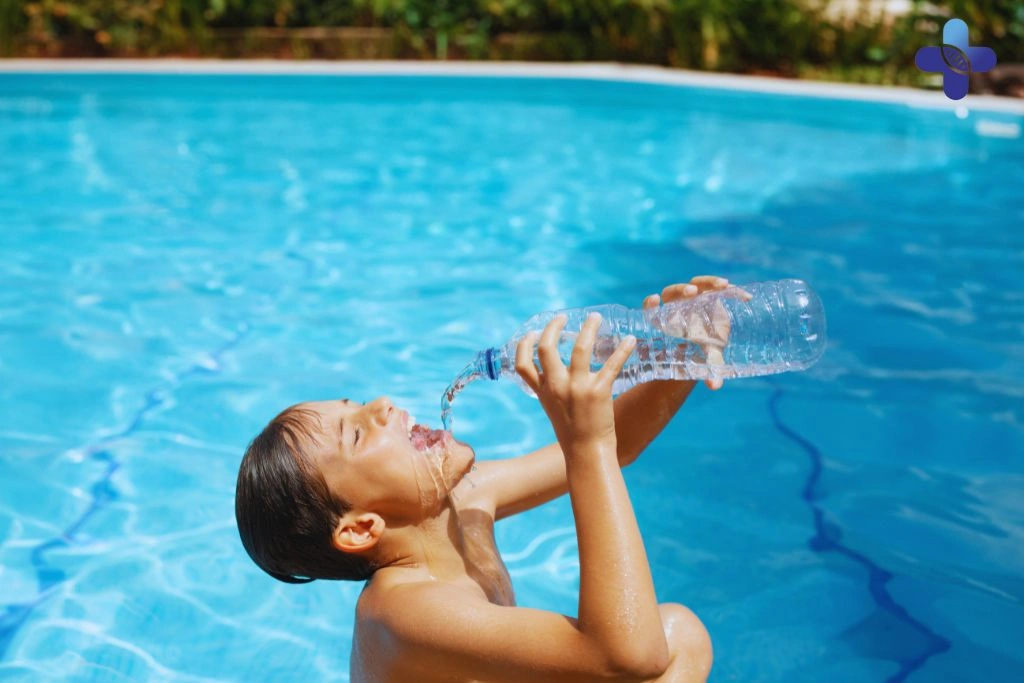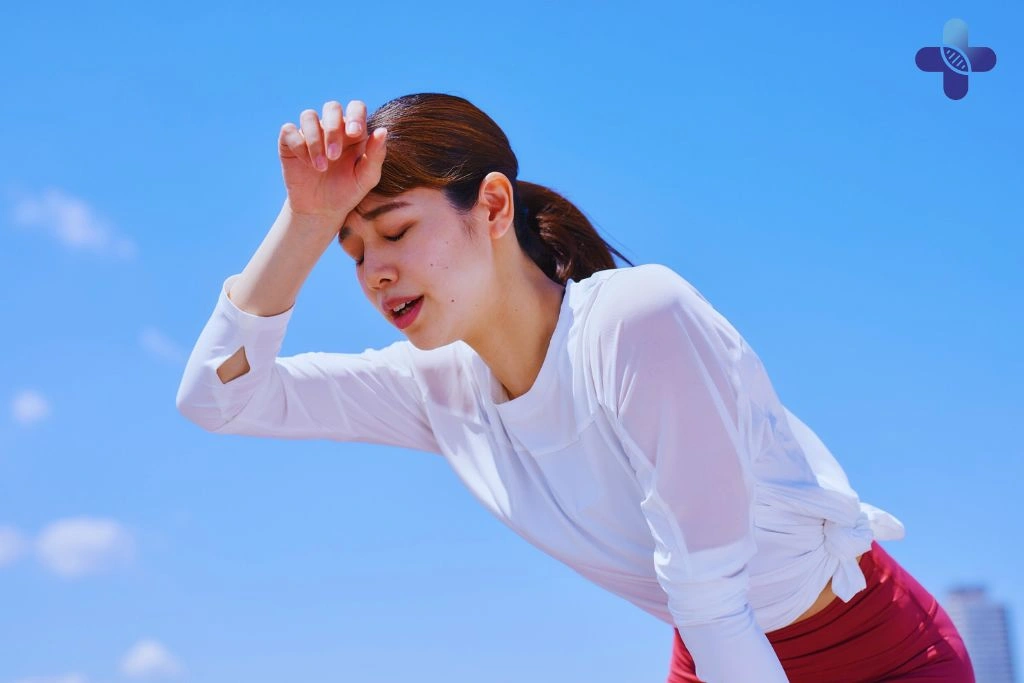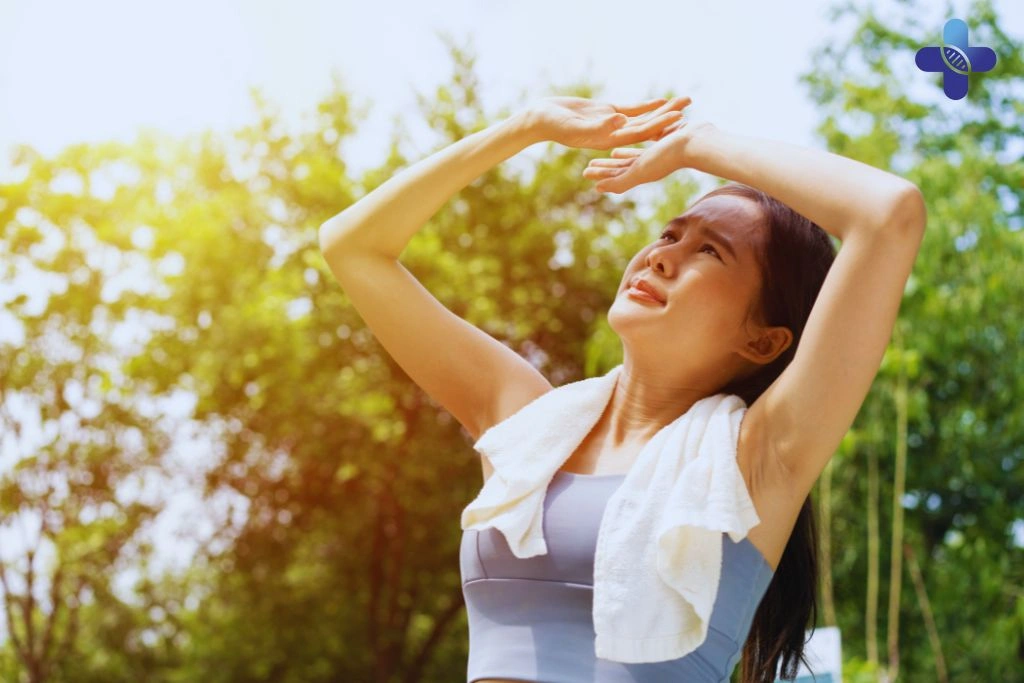Bali’s tropical climate, while inviting, poses a significant risk of heat exhaustion for travelers and residents alike. Along with other common diseases in Bali, such as dengue fever and foodborne illnesses, heat exhaustion can impact visitors who are not accustomed to the island’s hot and humid conditions. Life Everyouth Bali is committed to providing essential healthcare support for those affected by extreme heat exposure. Understanding the symptoms, prevention, and treatment options for heat exhaustion in Bali is crucial to staying safe and healthy while enjoying the island.

Comprehensive Guide to Heat Exhaustion in Bali: Causes, Symptoms, Prevention, and Treatment
Heat exhaustion is a serious condition caused by prolonged exposure to high temperatures and excessive loss of fluids and electrolytes. In Bali’s hot and humid climate, travelers and outdoor workers are particularly vulnerable, especially if they engage in strenuous activities without proper hydration. Symptoms include dizziness, excessive sweating, nausea, muscle cramps, and weakness, which can escalate into heatstroke if left untreated. Preventing heat exhaustion involves staying hydrated, wearing light clothing, and taking breaks in shaded or air-conditioned areas. Life Everyouth Bali offers professional medical care to help manage symptoms and ensure a safe recovery for those affected.
What is Heat Exhaustion?
Heat exhaustion is a heat-related illness that occurs when the body overheats due to prolonged exposure to high temperatures and dehydration. Life Everyouth Bali emphasizes that symptoms can range from excessive sweating and dizziness to nausea and muscle cramps. If left untreated, heat exhaustion may escalate to heat stroke, a life-threatening condition.
Symptoms of Heat Exhaustion
Recognizing heat exhaustion early can prevent severe complications. Life Everyouth Bali advises watching out for symptoms such as:
Profuse Sweating
Excessive sweating is the body’s way of trying to cool down. However, prolonged sweating without adequate fluid replacement can lead to dehydration and further complications. Life Everyouth Bali advises staying hydrated at all times.
Weakness or Fatigue
Heat exhaustion drains energy, causing weakness and fatigue. Individuals may feel unusually tired, sluggish, or unable to perform routine activities. Life Everyouth Bali recommends resting in a cool place to regain strength.
Dizziness or Fainting
A sudden drop in blood pressure due to dehydration can cause dizziness or fainting. If dizziness occurs, sit or lie down immediately and sip on fluids. Life Everyouth Bali is ready to assist with immediate care if symptoms persist.
Nausea or Vomiting
Heat exhaustion can upset the stomach, leading to nausea or vomiting. If vomiting prevents proper hydration, IV fluid therapy at Life Everyouth Bali can help restore lost electrolytes and fluids efficiently.
Rapid Heartbeat
An elevated heart rate is a sign that the body is struggling to cool down. This symptom should not be ignored, as it may indicate worsening heat stress. Life Everyouth Bali advises seeking medical attention if a rapid heartbeat persists.
Muscle Cramps
Dehydration and electrolyte imbalance can trigger painful muscle cramps. Replenishing fluids and essential minerals like potassium and sodium is crucial. Life Everyouth Bali provides professional hydration therapy to relieve muscle cramps effectively.

How to Prevent Heat Exhaustion in Bali
Prevention is the best approach to avoiding heat exhaustion. Life Everyouth Bali recommends the following strategies:
Stay Hydrated
Drinking plenty of water throughout the day is crucial, especially in Bali’s hot and humid climate. Dehydration increases the risk of heat exhaustion, so ensure you consume enough fluids. Life Everyouth Bali advises carrying a reusable water bottle and sipping water regularly, even if you don’t feel thirsty.
Avoid Direct Sun Exposure
Excessive sun exposure raises body temperature and accelerates dehydration. Seek shade whenever possible and wear lightweight, breathable clothing to protect yourself from the sun. Life Everyouth Bali recommends using an umbrella or a wide-brimmed hat to shield from direct sunlight.
Take Regular Breaks
If you’re engaging in outdoor activities, take frequent breaks in shaded or air-conditioned areas. Resting allows your body to cool down and prevents excessive heat buildup. Life Everyouth Bali suggests planning your schedule to include breaks, especially during peak heat hours.
Use Sunscreen
Applying sunscreen reduces excessive heat absorption and protects your skin from harmful UV rays. Sunburn can impair your body’s ability to cool down, increasing the risk of heat exhaustion. Life Everyouth Bali advises using a broad-spectrum sunscreen with SPF 30 or higher and reapplying it every two hours when outdoors.

Treatment for Heat Exhaustion in Bali
Moving to a Cool, Shaded Area
The first step in managing heat exhaustion is to immediately move to a cooler environment. Seeking shade or an air-conditioned space can help regulate body temperature and prevent the condition from worsening. Life Everyouth Bali advises avoiding direct sun exposure once symptoms appear.
Drinking Water or Electrolyte-Replenishing Fluids
Hydration is crucial in reversing the effects of heat exhaustion. Drinking water or electrolyte-rich fluids helps restore the body’s balance. Life Everyouth Bali recommends consuming coconut water or sports drinks to replenish lost minerals effectively.
Applying Cool Compresses
Cooling down the body is essential in heat exhaustion treatment. Applying cool compresses to the forehead, neck, and wrists can accelerate the cooling process. Life Everyouth Bali suggests using damp towels or ice packs wrapped in cloth to avoid direct skin contact.
Seeking Medical Attention if Symptoms Persist
If symptoms do not improve within 30 minutes or worsen, medical intervention is necessary. Persistent dizziness, vomiting, or confusion may indicate a more severe heat-related illness. Life Everyouth Bali provides professional treatment, including IV hydration therapy, to aid recovery and prevent complications.
Practical Tips for Staying Safe in Bali’s Heat
Schedule Outdoor Activities Wisely
Plan outdoor activities during cooler hours, such as early morning or late afternoon. Avoiding peak heat hours reduces the risk of overheating and dehydration. Life Everyouth Bali suggests checking the daily temperature forecast before heading out.
Monitor Weather Conditions and Heat Advisories
Stay updated on Bali’s weather conditions and heat advisories. High humidity combined with extreme temperatures can accelerate dehydration. Life Everyouth Bali recommends using weather apps to track temperature changes and stay prepared.
Be Mindful of Alcohol and Caffeine Consumption
Both alcohol and caffeine contribute to dehydration, which can worsen the effects of heat exhaustion. Moderating your intake of these beverages is crucial for staying hydrated. Life Everyouth Bali advises alternating these drinks with water or electrolyte-rich fluids.
Recognize Early Warning Signs
Recognizing warning signs early and acting promptly can prevent heat exhaustion from escalating into heat stroke. If symptoms like dizziness, excessive sweating, or nausea appear, take immediate action. Life Everyouth Bali emphasizes the importance of listening to your body and seeking medical attention if needed.

Conclusion
Heat exhaustion is a preventable condition, but when it occurs, immediate and effective action is necessary to avoid serious health complications. Life Everyouth Bali is dedicated to providing expert medical care to travelers and residents suffering from heat-related illnesses. Our team emphasizes the importance of recognizing early symptoms, such as dizziness, excessive sweating, and muscle cramps, to prevent escalation to heat stroke. By maintaining proper hydration, minimizing direct sun exposure, and being aware of reliable medical facilities like Life Everyouth Bali, individuals can safeguard their well-being while exploring the stunning landscapes of Bali. Whether you need urgent medical assistance or preventive guidance, Life Everyouth Bali is your trusted partner in ensuring a safe and healthy stay on the island.
Frequently Asked Questions (FAQs)
What are the common causes of heat exhaustion in Bali?
Heat exhaustion in Bali is primarily caused by prolonged exposure to high temperatures and humidity, leading to dehydration and overheating. Factors such as excessive physical activity under the sun, lack of proper hydration, wearing non-breathable clothing, and consuming alcohol or caffeine contribute to the risk. Visitors who are not acclimated to Bali’s tropical climate, especially young children, the elderly, and individuals with pre-existing conditions, are more vulnerable. To prevent heat exhaustion, it is essential to stay hydrated, wear light clothing, avoid direct sun exposure during peak hours, and take regular breaks in shaded or air-conditioned areas.
What are the early warning signs of heat exhaustion?
Early signs of heat exhaustion include excessive sweating, dizziness, headache, nausea, muscle cramps, fatigue, and a rapid heartbeat. Some individuals may experience clammy skin, confusion, or overall weakness, signaling that the body is struggling to regulate its temperature. If these symptoms appear, it is crucial to move to a cooler place, drink fluids, and rest. Ignoring these signs can lead to heat stroke, a severe condition requiring immediate medical attention at Life Everyouth Bali.
How can I differentiate between heat exhaustion and heat stroke?
Heat exhaustion presents symptoms such as heavy sweating, weakness, nausea, and dizziness, while heat stroke is far more severe, characterized by a body temperature above 40°C (104°F), dry or hot skin (due to loss of sweating), confusion, seizures, or unconsciousness. Heat exhaustion can be managed with rest, hydration, and cooling techniques, but heat stroke is a medical emergency that requires urgent treatment at Life Everyouth Bali to prevent organ failure or fatal complications.
What should I do if I experience heat exhaustion symptoms?
If you experience heat exhaustion, immediately move to a cool, shaded, or air-conditioned area, lie down, and elevate your legs slightly to improve circulation. Drink water or an electrolyte-rich fluid to restore hydration and cool your body by applying damp cloths to your skin or using a fan. Avoid physical exertion and tight clothing, and if symptoms persist for more than 30 minutes or worsen (such as vomiting, confusion, or fainting), seek medical attention at Life Everyouth Bali.
How can I prevent heat exhaustion while traveling in Bali?
Preventing heat exhaustion involves staying hydrated by drinking plenty of water throughout the day, avoiding prolonged exposure to direct sunlight, and planning outdoor activities during cooler hours (early morning or late afternoon). Wearing lightweight, breathable clothing, using sunscreen to prevent sunburn, and taking frequent breaks in shaded areas can help maintain body temperature. Avoiding excessive alcohol or caffeine intake, which can contribute to dehydration, is also crucial in minimizing the risk.
How long does it take to recover from heat exhaustion?
Recovery from heat exhaustion typically takes a few hours with proper rest, hydration, and cooling measures, but in some cases, it may take up to 24-48 hours to fully regain strength. It is essential to avoid further sun exposure and strenuous activities until symptoms completely subside. If symptoms persist despite cooling efforts or worsen over time, seeking medical attention at Life Everyouth Bali is highly recommended to prevent complications like heat stroke.
Can children and elderly individuals be more affected by heat exhaustion?
Yes, children and elderly individuals are more vulnerable to heat exhaustion due to their bodies’ reduced ability to regulate temperature effectively. Children produce more metabolic heat during physical activity and sweat less efficiently, while older adults may have underlying health conditions that increase their susceptibility to dehydration and overheating. Extra precautions, such as ensuring adequate hydration, dressing appropriately, and limiting outdoor exposure during peak heat hours, should be taken to protect these age groups from heat-related illnesses.
Is IV therapy helpful for treating heat exhaustion?
Yes, IV therapy is highly effective in treating moderate to severe cases of heat exhaustion by quickly restoring lost fluids and electrolytes. Dehydration from excessive sweating can lead to an imbalance in sodium and potassium levels, causing fatigue, dizziness, and muscle cramps. IV hydration therapy at Life Everyouth Bali replenishes essential nutrients directly into the bloodstream, ensuring faster recovery and preventing further complications, especially for those unable to rehydrate adequately through oral fluids.
Can sunburn contribute to heat exhaustion?
Yes, sunburn can significantly increase the risk of heat exhaustion as it damages the skin, reducing the body’s ability to regulate temperature and retain moisture. Severe sunburn can lead to dehydration, causing excessive fluid loss and increasing susceptibility to heat-related illnesses. Protecting the skin by wearing sunscreen, seeking shade, and wearing protective clothing can help prevent both sunburn and heat exhaustion while traveling in Bali.
Where can I get medical treatment for heat exhaustion in Bali?
If you experience symptoms of heat exhaustion that do not improve with rest and hydration, seek medical care at Life Everyouth Bali, where experienced healthcare professionals provide IV hydration therapy, electrolyte replenishment, and comprehensive treatment for heat-related illnesses. With fully equipped medical facilities and expert care, Life Everyouth Bali ensures that travelers and residents receive prompt and effective treatment to recover quickly and continue enjoying their time on the island.

